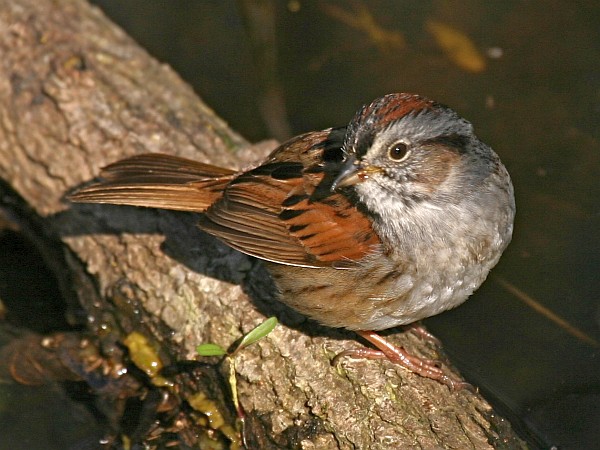
Ornithologists have known for a long time that swamp sparrows in western Pennsylvania don’t sing exactly the same way as those in Massachusetts. They have regional dialects but until recently no one knew how they learned and retained their accents.
Richard Mooney at Duke University studied the electrical impulses in swamp sparrows’ brains as they sing and listen. He discovered that they do it with mirrors.
In swamp sparrows as in humans, there are mirror neurons that fire when the bird sings and when it hears a song similar to its own. These neurons allow the sparrow to remember specific songs for up to a year even if he doesn’t hear or sing the song during that period. In this way, young birds learn songs from their elders and birds in a region learn from each other.
This means the birds maintain their own dialect even when they’re away on migration. I imagine they recognize other birds from their home region just as one Pittsburgher recognizes another when he hears him say “dahntahn.”
Read more about the study and how Mooney measured electrical impulses in the swamp sparrow’s brain in this interview at WGBH.
(Thanks to Chuck Tague for this photo of a swamp sparrow.)